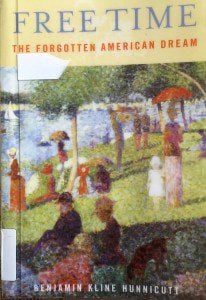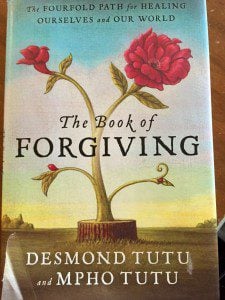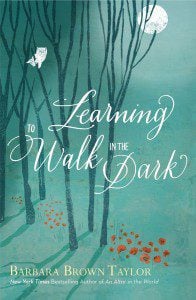There was an article in a recent issue of The New York Times Magazine titled “Mary Cain Is Growing Up Fast” about an 18-year-old young woman, who is a promising professional middle-distance runner from New York:
In fifth grade, she ran a 6 [minute, 15 seconds] mile…. In ninth grade, Cain won the New York State 1,500-meter championship, breaking the freshman girls’ record. The summer after her sophomore year, she flew to the Junior World Championships in Barcelona and ran the 1,500 in 4 [minutes, 11 seconds] setting a new American high-school record for girls.
Why bring up this running prodigy in regard to self-care?
Well, another significant part of this article is the ways that Alberto Salazar, the coach training Cain, is helping

her learn from his mistakes. “In 1982, at age 23, Salazar set American records in the 5,000 and 10,000 meters. He also won the Boston Marathon and his third New York Marathon in a row.” But the article continues that:
Among Salazar’s gifts, he was especially adept at overriding what…[an] exercise and sports science [professor] calls the central governor, the part of the brain that tells a person that the body is nearly out of fuel or is building up toxic levels of byproducts like lactic acid and needs to slow down. This system kicks in prophylactically, creating a dire sense of fatigue well before the body will fail. Elite athletes excel at ignoring the signals from the central governor and pushing through exhaustion. Salazar sometimes finished races so depleted that he required IV fluids. Once, in 1978, at age 19, at the end of the Falmouth Road Race on Cape Cod, he collapsed, his temperature spiked to 107 degrees and a priest read last rites.
Several years later, still near the beginning of what should have been a long career, Salazar’s body gave out and stopped responding to the progressive-overload principle. In the 1984 Olympic marathon in Los Angeles, Salazar, who was a favorite to win, finished a disappointing 15th. Through the rest of his 20s and early 30s, he suffered from an endless string of respiratory infections. He felt an unshakable exhaustion. He could barely run at all. Endurance athletes refer to this phenomenon as overtraining syndrome, a condition that is well documented but poorly understood, a result of too much exercise and too little rest. Salazar’s immune and endocrine systems malfunctioned; he became depressed. Eventually he recovered enough to train for and win the Comrades Ultramarathon in South Africa in 1994. Yet he never regained his full athletic powers, and he never won a major marathon again.
I’m interested in the parallels between athletic burnout and burnout in other fields.
Some of you may recall previously when I shared about the experience of Arianna Huffington, the founder of the online media website The Huffington Post, who in her book Thrive describes collapsing from exhaustion, hitting her head on the corner of her desk, cutting her eye and breaking her cheekbone in the process. After extensive medical tests, it turned out the only thing wrong with her was profound sleep deprivation from “working eighteen hours a day, seven days a week” ( 1-2). That workload was not sustainable long term.
This past spring I helped co-teach a course on Unitarian Universalist History at Wesley Theological Seminary, and in my research, one of the many themes I found — in addition to all the wonderful, heroic, and inspiring parts of UU history that are often highlighted — was that there is a less talked about trend in UU history of many of our most respected figures working themselves past the point of exhaustion and doing permanent damage to their health. (You may be able to think of parallels in other fields.) We often rightly look at figures from our past to inspire our work for peace and justice today, but there are also cautionary tales from our history.
Consider, for example, the famous Unitarian minister William Ellery Channing (1780-1842), “one of the most significant religious thinkers of the 19th century.” Among many other things, he preached the sermon “Unitarian Christianity” in 1819 that helped give us the Unitarian half of our name, and we named our chapel after him here at UUCF. But as a young student, he pushed himself far too hard. He would regularly stay up for hours past midnight reading by candlelight. He often slept “on the hard floor without blankets,” and he did not eat enough, leaving himself frequently malnourished. And that extreme exertion is likely the reason Channing was sickly for most of his life. At the beginning of his career, “the anxiety, stress, and exhaustion …[took a] terrible toll [on his] adrenal glands,” permanently weakening his immune and endocrine systems (44). The parallels are strong to the marathoner Alberto Salazar mentioned earlier.
Similarly, the Unitarian minister Theodore Parker (1810-1860), “The great orator and important abolitionist…often credited with giving one of the three most influential sermons in Unitarian history” on “The Transient and the Permanent in Christianity” also worked himself to the point of exhaustion (359-60). To take just one example, in the 28 months leading up to a desperately-needed, year-long sabbatical, Parker “read at least 109 books (most of them scholarly tomes in languages other than English, and many of them multivolume), preached 221 times, lectured at least 64 times, wrote 194 sermons and 14 lectures, and published over 2,000 pages of material, including 3 pamphlets, 3 lengthy articles for the Dial, and 3 books” (371). But even a yearlong sabbatical cannot make up for ignoring the signals from your brain’s central governor and pushing past the point of exhaustion for years or decades. He was forced into an early retirement because of ill health, eventually developed tuberculosis, and died at the far too young age of 50.
Or consider the great institutionalist Henry Whitney Bellows (1814-1882), who was the major organizing force bringing together independent-minded Unitarians in the 19th-century into a National Conference. He also helped countless numbers of soldiers through his work as the president of the U.S. Sanitary Commission during the Civil War. But his overwork left him
subject to tonsillitis and at least two major illness a year which would keep him in bed for several weeks. Sometimes he was so exhausted from the nervous tension of writing his sermons and straining for new ideas that he would pace up and down in his study for days without writing down a single idea. He continually drove himself, usually to give way to what he conceived to be his own weakness…. It never seems to have occurred to him that his difficulties might have been simple and normal nervous exhaustion, the best cure for which would have been to let up on the pressures and to find some sort of relaxation. (24)
Indeed, his overwork resulted once in him fainting in the pulpit “from sheer overwork” — after which he was given a six month sabbatical! Later he was diagnosed with “perfectly sound organs in a highly exhausted condition” (186).
Likewise, Thomas Starr King (1824-1864), known as “the preacher who saved California for the Union” during the Civil War, died in 1864, a year before the war’s end, at the far too young an age of 39: Another “great but fragile hero who worked himself to death” (291). “The hectic pace of his preaching, traveling, fundraising, and public speaking engagements used up [his] strength. He collapsed with diphtheria and pneumonia…” (102).
In contrast, Jenkin Lloyd Jones (1843-1918), who founded All Souls Unitarian Church in Chicago and helped directed its extensive community outreach program, lived a longer live, dying at age 74. Nevertheless, consider these numbers (and keep in mind that they are before the invention of the automobile):
…By 1880, when in one year he had traveled 14,676 miles, visited 41 places, given 78 sermons and addresses — exclusive of his…duties as minister of the First Independent Society — he had come to the verge of ‘physical bankruptcy’ and felt entitled to a release. The Conference thought otherwise” and voted him Missionary Secretary of the Western Unitarian Conference! (137)
This episode from Jenk’s life reminds us that overwork often leads others, not to grateful invitations for you to take a break, but to grateful invitations for you to do even more because you seem so competent — even if you know that you have been ignoring the signals from your central governor and have been pushing through exhaustion for far too long at the risk of permanent damage to your health.
Turning to A. Powell Davies (1902-1957), minister of All Souls Unitarian in D.C. and “the most important midcentury spokesperson for American Unitarianism,” he died at the far too young age of 55. Although he had a recurring problem with phlebitis (inflammation of a vein), Davies had a heavy speaking schedule in addition to his work in church planting, and in 1957 a recurrence of phlebitis caused his death (144).
Or consider Eugene Pickett (1925 -), UUA president from 1979 to 1985. Pickett is still alive at age 90, but consider this description: in Atlanta “in a 12-year ministry, [he] took a 300-member church and helped it grow to 1,150 members with an attendance of about 805. His ministries were intensely personal so that he never took any time off and was available to everyone.” In one appraisal it was said that, “This availability served him well in his years at the UUA headquarters.” But I wonder what his family would say about the impact on them of his professional availability (372). I haven’t asked them, so I do not know (and perhaps I’m projecting about what my own family would say); regardless, I suspect many of us can think of examples of workaholics who have neglected their families.
I do, however, have testimony in the case of James Luther Adams (1901 – 1994), often called the most influential theologian among Unitarian Universalists in the 20th century. Deni Davidoff, former Moderator of the UUA, in her introduction to the 2013-2014 James Luther Adams Lecture said that when she talked to JLA’s wife, Margaret Adams, she lamented that he never had time for his [family] because he spent all his energy on his students and colleagues.” And during the Q&A time, a member of the audience said that having realized the extent of the anger one of JLA’s daughters had toward him for his inattention, he confessed to her at the memorial service for Adams that, “I was one of those students who stole time with your father that he should have spent with you.” She wept.
JLA lived a long time, dying in 1994 at the age of 92. (As a point of comparison, JLA was born one year earlier than A. Powell Davies, but lived almost four decades longer.) Adams is beloved by many, but the impact of his overwork on his family was devastating, and forces us to ask what similar dynamic we might be allowing through the seduction of co-dependency: needing to be needed and loving to be loved?
We rightly draw inspiration from the pathbreaking figures of the past for the ongoing work of peace and justice. But we also need to see the humanity, limitations, and complexity of our forbears that we may recognize those same aspects in ourselves. And as we reflect on these stories for how we feel called to spend our limited time and energy, I would like to leave you with two quotes.
The first is from the Trappist monk Thomas Merton, who wrote that,
There is a pervasive form of modern violence to which the idealist…most easily succumbs: activism and over-work. The rush and pressure of modern life are a form, perhaps the most common form, of its innate violence. To allow oneself to be carried away by a multitude of conflicting concerns, to surrender to too many demands, to commit oneself to too many projects, to want to help everyone in everything is to succumb to violence. The frenzy of the activist neutralizes [his or her] work…. because it kills the root of inner wisdom, which makes work fruitful. (86)
The second quote is from a book called Listening Hearts: Discerning Call in Community:
Even when a need exists and we are well qualified to meet it, we are not necessarily called to respond to it. Something may seem logical for us to do, but that does not mean that [we are] call[ed] to do it…. Similarly, simply because a task or undertaking is good to do, does it mean that we are called to do it or that we should continue doing it? To be doing good can be the greatest obstacle to doing something even better.
In the coming days and weeks, what might you be called to let go of that is merely “good” so that you might bring the fullness of your best self to something to which you are truly called?
What might you be called to let go because your overwork is putting your health at risk, leaving you run down, drained, and with a weakened immune system?
What steps might you take in the coming days and weeks toward shaping a path for your life that is more sustainable and life-giving long term for both yourself and your loved ones?
The Rev. Dr. Carl Gregg is a trained spiritual director, a D.Min. graduate of San Francisco Theological Seminary, and the minister of the Unitarian Universalist Congregation of Frederick, Maryland. Follow him on Facebook (facebook.com/carlgregg) and Twitter (@carlgregg).
Learn more about Unitarian Universalism:
http://www.uua.org/beliefs/principles
















